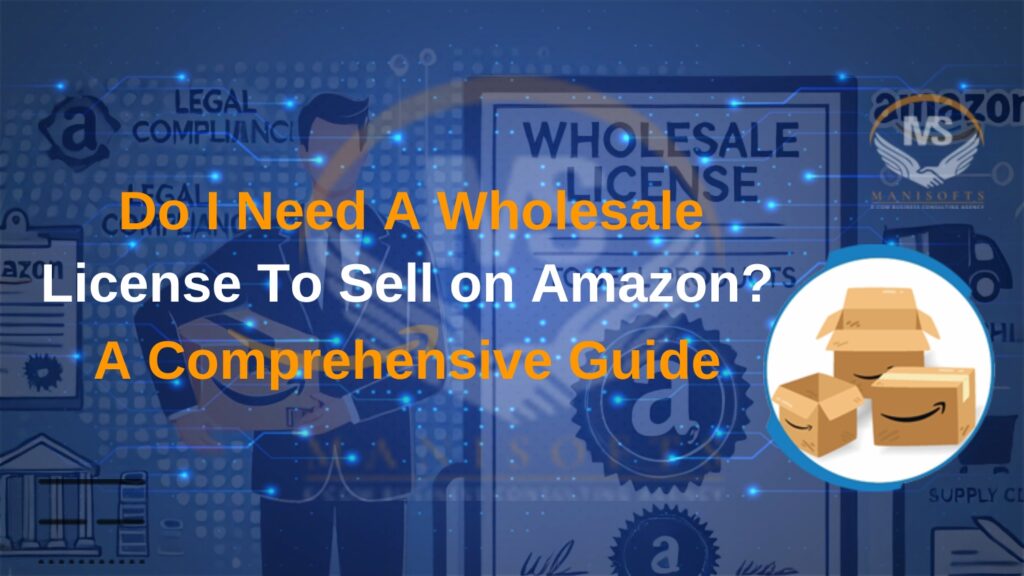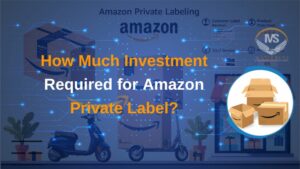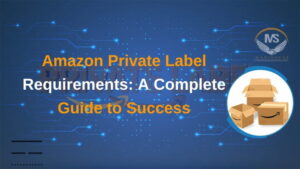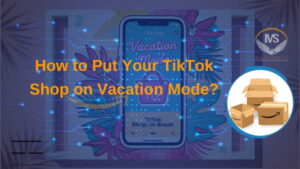Discover if you need a wholesale license to sell on Amazon. Learn about the legal requirements, benefits, and steps to obtain a wholesale license for your Amazon business. Find out how this license can impact your online selling strategy and ensure compliance with Amazon’s policies.
Introduction
Selling on Amazon can be a lucrative business venture, but understanding the legal requirements is essential to avoid potential pitfalls. One common question that arises for aspiring sellers is whether they need a wholesale license to operate on the platform. This introduction will explore the necessity of a wholesale license, the benefits it offers, and the steps to acquire one. By understanding these aspects, you can ensure your Amazon business complies with regulations and positions itself for success in the competitive online marketplace.
Do I Need A Wholesale License To Sell on Amazon?
General Overview of Licensing Requirements
When it comes to selling on Amazon, understanding licensing requirements is crucial for ensuring your business operates legally and efficiently. A wholesale license, also known as a resale certificate, allows you to purchase goods at wholesale prices without paying sales tax.
This can be particularly beneficial for those looking to resell products on platforms like Amazon. However, the necessity of a wholesale license depends on several factors, including the nature of your business and the products you intend to sell.
In general, if you are buying products in bulk from manufacturers or distributors with the intention of reselling them, you will likely need a wholesale license. This license not only helps you avoid paying sales tax on bulk purchases but also signifies to suppliers and regulatory bodies that you are a legitimate reseller. Additionally, having a wholesale license can open up opportunities to partner with larger suppliers who may require proof of such licensing before doing business with you.
Breakdown by Product Category
The requirement for a wholesale license can vary significantly depending on the product category. Here’s a closer look at some common categories:
- Electronics: Selling electronics often requires a wholesale license due to the high value and volume of the goods. Many suppliers in this category insist on a license to ensure the legitimacy of their buyers.
- Clothing and Accessories: For fashion items, a wholesale license is usually necessary, especially if you are sourcing directly from manufacturers or large distributors. This license helps you access better pricing and a wider range of products.
- Health and Beauty Products: This category is heavily regulated, and a wholesale license is often required. Additionally, there may be specific health regulations and certifications needed to sell certain products.
- Home Goods and Furnishings: Similar to other categories, a wholesale license is typically required to purchase home goods in bulk. Suppliers often require proof of licensing to avoid issues related to tax and legitimacy.
- Food and Beverages: This category has stringent regulations. Besides a wholesale license, you might also need additional permits depending on the type of food products and their sources.
Importance of Checking Local Regulations
While obtaining a wholesale license is a key step, it’s equally important to check and comply with local regulations. Licensing requirements can vary significantly from one state to another, and local governments may have additional rules for specific product categories.
- State Regulations: Each state has its own set of rules regarding wholesale licenses. It’s essential to understand these requirements, including the application process, renewal terms, and any associated fees.
- City and County Regulations: Beyond state-level requirements, some cities and counties have their regulations that you must adhere to. This can include additional business permits or health inspections, particularly for food and beverage products.
- International Considerations: If you plan to source products from international suppliers or sell to customers outside your home country, be aware of international trade regulations and licensing requirements.
To ensure full compliance, it’s advisable to consult with a legal expert or business advisor who specializes in ecommerce and wholesale distribution. This step can save you from potential legal issues and help streamline your business operations on Amazon.
By understanding the licensing requirements and adhering to local regulations, you can set a strong foundation for your Amazon business. A wholesale license not only facilitates smoother transactions with suppliers but also helps establish your credibility as a professional seller in the competitive online marketplace.
Other Licenses You Might Need
Business License
A business license is a fundamental requirement for anyone looking to operate a legitimate business, including those selling on Amazon. Local governments issue this license and grant you the legal right to conduct business in a particular jurisdiction. The specific requirements and application process can vary depending on your location, but generally, you will need to provide details about your business structure, location, and nature of your operations.
Obtaining a business license ensures that you are complying with local laws and regulations, which can protect you from potential legal issues. It also enhances your credibility with customers and suppliers. Operating without a business license can result in fines and other penalties, so it’s essential to secure this license before starting your Amazon business.
Sales Tax Permit
A sales tax permit, also known as a seller’s permit or resale certificate, is another critical license you might need. This permit allows you to collect sales tax from customers on behalf of the state. If you are selling products on Amazon, you are responsible for charging sales tax on taxable items and remitting it to the appropriate tax authority.
The requirement for a sales tax permit varies by state, but generally, if you have a physical presence or significant sales in a state, you will need to obtain this permit. The application process typically involves registering with your state’s tax department and providing information about your business.
Having a sales tax permit also allows you to purchase goods for resale without paying sales tax at the time of purchase, which can improve your cash flow and reduce overall costs. It’s crucial to stay informed about the sales tax laws in each state where you conduct business to ensure full compliance.
Product-Specific Licenses
Depending on the types of products you plan to sell on Amazon, you might need additional product-specific licenses. These licenses are required for certain regulated items to ensure they meet safety, health, and quality standards.
- Food and Beverages: If you sell food products, you may need a food seller’s permit or food handler’s license. These licenses ensure that your products meet health and safety standards set by local or state health departments.
- Cosmetics and Beauty Products: Selling cosmetics often requires compliance with regulations set by the Food and Drug Administration (FDA) or equivalent authorities in your country. You may need specific licenses or certifications to ensure that your products are safe for consumer use.
- Alcohol: If you plan to sell alcoholic beverages, you will need a special license, such as a liquor license. These licenses are heavily regulated and typically involve rigorous application processes and adherence to strict guidelines.
- Firearms and Ammunition: Selling firearms or ammunition requires federal licenses, such as those issued by the Bureau of Alcohol, Tobacco, Firearms, and Explosives (ATF). Compliance with federal, state, and local laws is mandatory in this category.
- Health and Medical Products: For products like medical devices or supplements, you may need to obtain specific certifications or licenses from health authorities to ensure they comply with regulatory standards.
Securing the necessary product-specific licenses not only ensures compliance with legal requirements but also builds trust with customers who are assured of the quality and safety of your products.
While selling on Amazon can be a lucrative venture, it requires careful attention to various licensing requirements. Obtaining a business license, sales tax permit, and any necessary product-specific licenses is essential for operating legally and successfully. By ensuring compliance with these requirements, you can avoid legal complications and focus on growing your Amazon business.
Tips for Wholesale Sellers
How to Find Reputable Wholesalers?
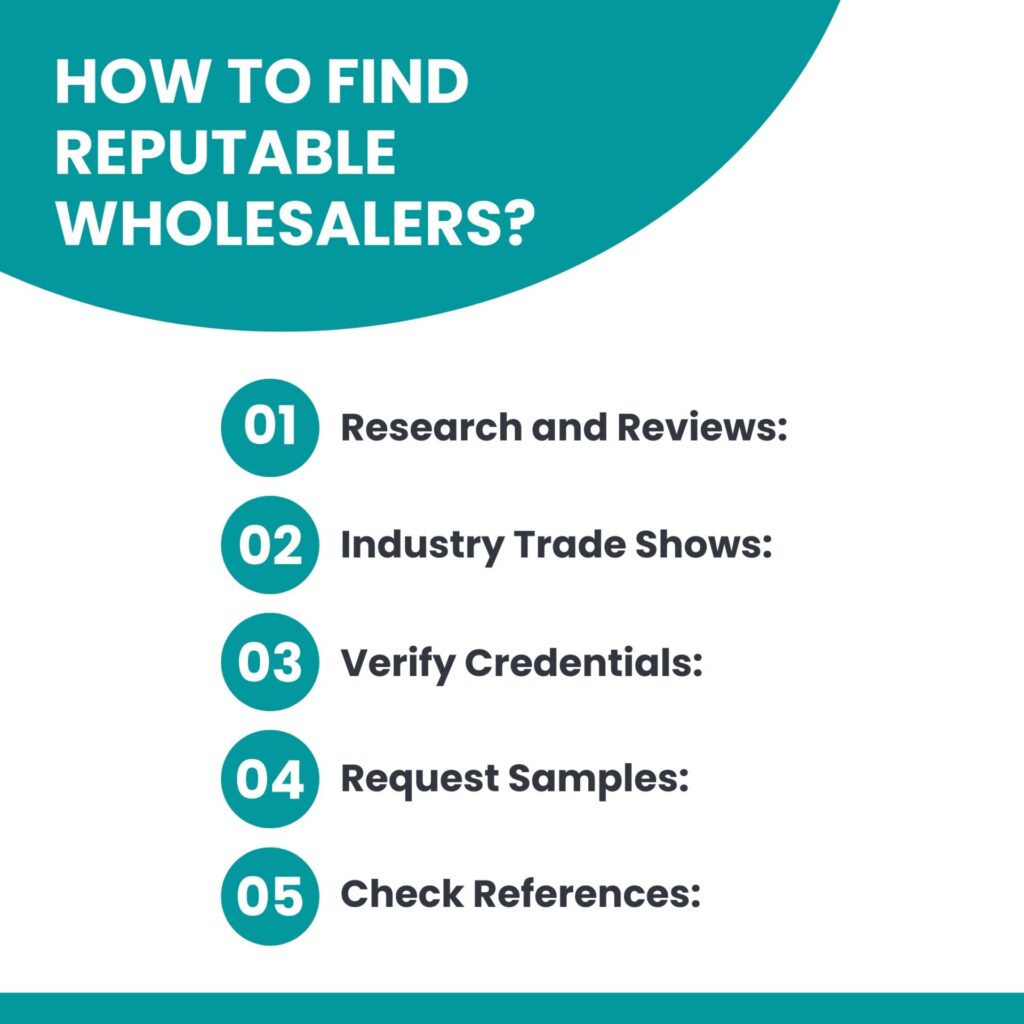
Finding reputable wholesalers is a crucial step for any wholesale seller looking to establish a successful business on Amazon. The quality and reliability of your suppliers can significantly impact your business operations and customer satisfaction. Here are some tips to help you identify and partner with trustworthy wholesalers:
- Research and Reviews: Start by conducting thorough research online. Look for reviews and ratings of potential wholesalers on business directories, forums, and social media platforms. Websites like Alibaba, ThomasNet, and Wholesale Central can be valuable resources for finding and evaluating wholesalers.
- Industry Trade Shows: Attending trade shows and industry events is an excellent way to meet wholesalers in person. These events allow you to see products firsthand, ask questions, and establish direct contact with potential suppliers.
- Verify Credentials: Ensure that the wholesalers you consider are legitimate businesses. Verify their credentials, such as business licenses, tax identification numbers, and any relevant certifications. Reputable wholesalers will have no issue providing this information.
- Request Samples: Before committing to a large order, request product samples. This allows you to assess the quality of the products and the reliability of the supplier’s fulfillment process.
- Check References: Ask wholesalers for references from other customers. Contact these references to get feedback on their experiences, including product quality, delivery times, and customer service.
Building Relationships with Suppliers
Building strong relationships with your suppliers is essential for long-term success as a wholesale seller. Positive relationships can lead to better pricing, priority service, and access to exclusive products. Here are some strategies for fostering good supplier relationships:
- Clear Communication: Maintain open and transparent communication with your suppliers. Clearly convey your expectations, order quantities, and delivery schedules. Promptly address any issues or concerns to avoid misunderstandings.
- Timely Payments: Ensure that you pay your suppliers on time. Consistent, timely payments build trust and demonstrate that you are a reliable business partner. This can lead to more favorable payment terms and discounts.
- Regular Orders: Place regular orders to show your commitment and reliability. Suppliers are more likely to prioritize businesses that provide them with consistent and predictable orders.
- Negotiate Fair Terms: While it’s important to negotiate favorable terms, avoid pushing too hard for unrealistic discounts. Aim for win-win agreements that benefit both parties and foster a cooperative relationship.
- Show Appreciation: Express gratitude and appreciation for your suppliers’ efforts. Simple gestures like thank-you notes or occasional gifts can go a long way in strengthening your relationship.
Managing Inventory and Pricing
Effective inventory management and pricing strategies are crucial for maintaining profitability and customer satisfaction. Here are some tips for managing your inventory and setting competitive prices:
- Use Inventory Management Software: Invest in inventory management software to track stock levels, monitor sales trends, and forecast demand. This helps prevent stockouts and overstock situations, optimizing your cash flow.
- Implement a Reorder System: Establish a reorder system to ensure you replenish stock before it runs out. Set reorder points based on sales velocity and lead times to maintain a consistent supply of products.
- Diversify Suppliers: Relying on a single supplier can be risky. Diversify your supplier base to mitigate the impact of potential disruptions and ensure a steady supply of products.
- Competitive Pricing: Conduct market research to understand your competitors’ pricing strategies. Price your products competitively while ensuring you maintain healthy profit margins. Consider factors such as product quality, brand reputation, and shipping costs when setting prices.
- Regularly Review Prices: Regularly review and adjust your prices based on market conditions, costs, and demand. Be flexible and responsive to changes in the market to stay competitive.
- Offer Promotions and Discounts: Periodically offer promotions and discounts to attract customers and boost sales. Ensure that these promotions are strategically planned to maintain profitability.
By finding reputable wholesalers, building strong supplier relationships, and effectively managing your inventory and pricing, you can establish a successful and sustainable wholesale business on Amazon. These tips will help you navigate the complexities of wholesale selling and position your business for long-term growth.
FAQ’s
No, a wholesale license and a business license are different. A business license allows you to legally operate your business in a specific jurisdiction, while a wholesale license allows you to buy products in bulk without paying sales tax.
A wholesale license is typically state-specific. If you plan to purchase products from wholesalers in multiple states, you may need to obtain a wholesale license for each state where you conduct business.
Selling on Amazon without the necessary wholesale license can lead to legal issues, including fines and penalties. Additionally, you may face difficulties in sourcing products from reputable wholesalers who require proof of licensing.
If you are selling used or handmade items, a wholesale license may not be necessary. However, if you start purchasing materials or products in bulk to resell, obtaining a wholesale license could be beneficial.
Yes, besides a wholesale license, you may need other licenses or permits, such as a business license, sales tax permit, or product-specific licenses, depending on your business operations and the types of products you sell.
Conclusion
While a wholesale license is not always mandatory to sell on Amazon, it offers significant benefits such as tax exemptions on bulk purchases, enhanced credibility with suppliers, and legal compliance. It is especially advantageous for those buying in bulk and reselling, as it facilitates access to better pricing and a broader range of products. Securing a wholesale license, along with any other necessary permits, ensures your business operates legally and efficiently, positioning you for success in the competitive Amazon marketplace.

